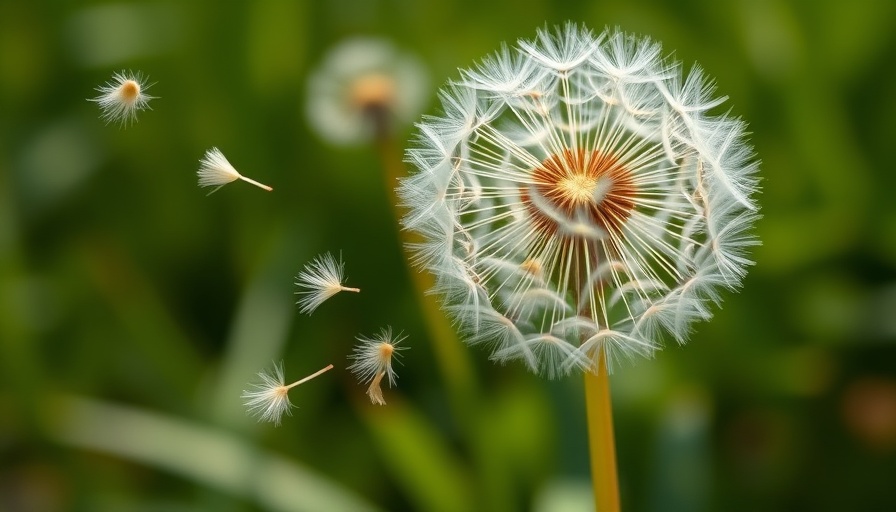
Understanding Eco-Anxiety: A Growing Concern
In today's world, it’s easy to feel overwhelmed by alarming reports about the environment. From catastrophic wildfires to the heartbreaking state of coral reefs, it often seems that every headline is a reminder of the planet's plight. This barrage of negative information has led many to experience eco-anxiety, a term that captures the emotional turmoil stemming from our changing climate. Eco-anxiety is characterized by feelings of helplessness and worry over the environmental crisis and its consequences for future generations, especially affecting our youth who are increasingly aware of these issues.
The Role of Gardening in Cultivating Hope
Gardening can serve as a potent antidote to eco-anxiety. Engaging with nature through gardening not only provides a tangible way to contribute positively to the environment but also offers mental well-being. Whether you’re cultivating a vegetable garden or nurturing a flower bed, gardening instills a sense of purpose and control in an otherwise chaotic world. For parents, it presents a unique opportunity to teach the next generation about sustainability, responsibility, and the interdependence of life on Earth.
Turning Negativity into Action: The Rise of Climate Optimism
Despite the grim portrayals prevalent in media, there is a bright side known as 'climate optimism.' This philosophy emphasizes focusing on solutions and actions individuals can take to mitigate climate change rather than getting bogged down in despair. The movement is about creating a new relationship with the environment—one that respects and nurtures the Earth while empowering communities to take collective action. For example, community gardening initiatives can bring neighbors together while fostering a love for nature among children.
Practical Tips: Making Your Garden More Eco-Friendly
Here are some actionable insights for making your garden a sanctuary for both you and the planet:
- Practice Organic Gardening: Opting for organic fertilizers and pesticides reduces the chemical impact on soil and local wildlife.
- Diversity is Key: Integrate various plants to enhance resilience against pests and diseases. Plant companion herbs like basil and marigold to ward away harmful insects while promoting pollinator-friendly practices.
- Incorporate Sustainable Practices: Utilize rain barrels for garden irrigation and implement composting systems to enrich your soil sustainably.
- Create Wildlife Habitats: Design areas of your garden with native plants to attract beneficial pollinators like bees and butterflies, which are vital to our ecosystem.
- Community Involvement: Join or initiate community garden projects. This fosters local connections and enhances the shared responsibility for environmental stewardship.
Emotional Benefits of Gardening
Gardening not only allows individuals to contribute to environmental conservation but also provides a sanctuary for the mind. Studies show that gardening can reduce stress and improve mood. Whether it’s planting a seed, tending to flowers, or harvesting vegetables, these activities connect us to the earth and instill a sense of accomplishment. So how can one cultivate a resilient mindset in light of eco-anxiety? By embracing the regenerative process of gardening, individuals can foster a sense of hope and optimism.
Embracing the Future: A Collective Responsibility
Ultimately, addressing eco-anxiety is about more than just individual action; it requires a collective commitment to change. By engaging in gardening, we not only nurture our mental health but also contribute to a healthier planet. As we teach our kids the importance of sustainability and caring for our environment, we sow the seeds of future stewardship. Remember, every small action counts, so let’s cultivate positivity together, one garden at a time!
 Add Row
Add Row  Add
Add 




Write A Comment